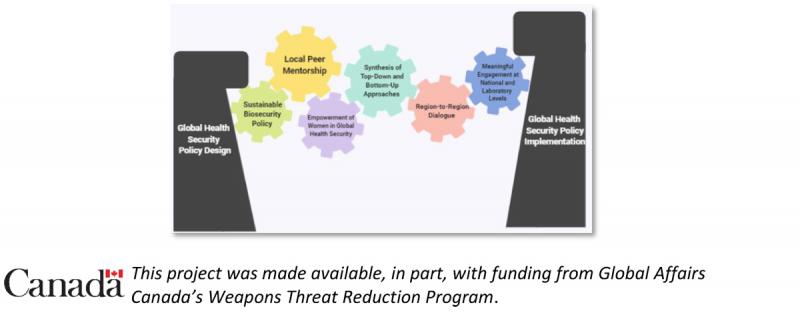The outbreak of the COVID-19 pandemic has demonstrated the important role of biosafety professionals working on the frontlines, and often behind the scenes, in guiding response efforts. Over the past year, the IFBA’s network of biosafety associations and certified professionals have exercised considerable initiative, ingenuity, and drive to implement practical, effective and sustainable COVID-19 biosafety and biosecurity practices in their respective countries. Their efforts underscore the need to tap into the experiences and competencies of individuals on the front lines of global health security who can positively shape the development of national biosafety and biosecurity policies.
There is an increasing awareness that national policies do not succeed or fail on their own merits; rather their progress is dependent upon the process of implementation (i.e., turning policy into practice). The space between government’s motivation behind the passage of new legislation and how that intent is translated into reality in many countries becomes an implementation gap when that policy remains on paper only or is implemented poorly. More needs to be done to try to ensure intentions for the safe and secure handling of biological materials are turned into results – in short, that policy failure is avoided.
In this context, the IFBA has been implementing a variety of programs to “bridge the implementation gap” between biosecurity policy development and implementation by engaging our global community of biosafety professionals and building crucial links between these frontline professionals and their national governments. The project adopts top-down and bottom-up approaches to translate global biosecurity initiatives into national policies that result in sustainable action on the front lines. Project activities include south-to-south peer mentorship, inter-regional dialogue and network building, empowering women and young scientists, awareness raising and increasing competency in sustainable approaches to biosafety and biosecurity.

